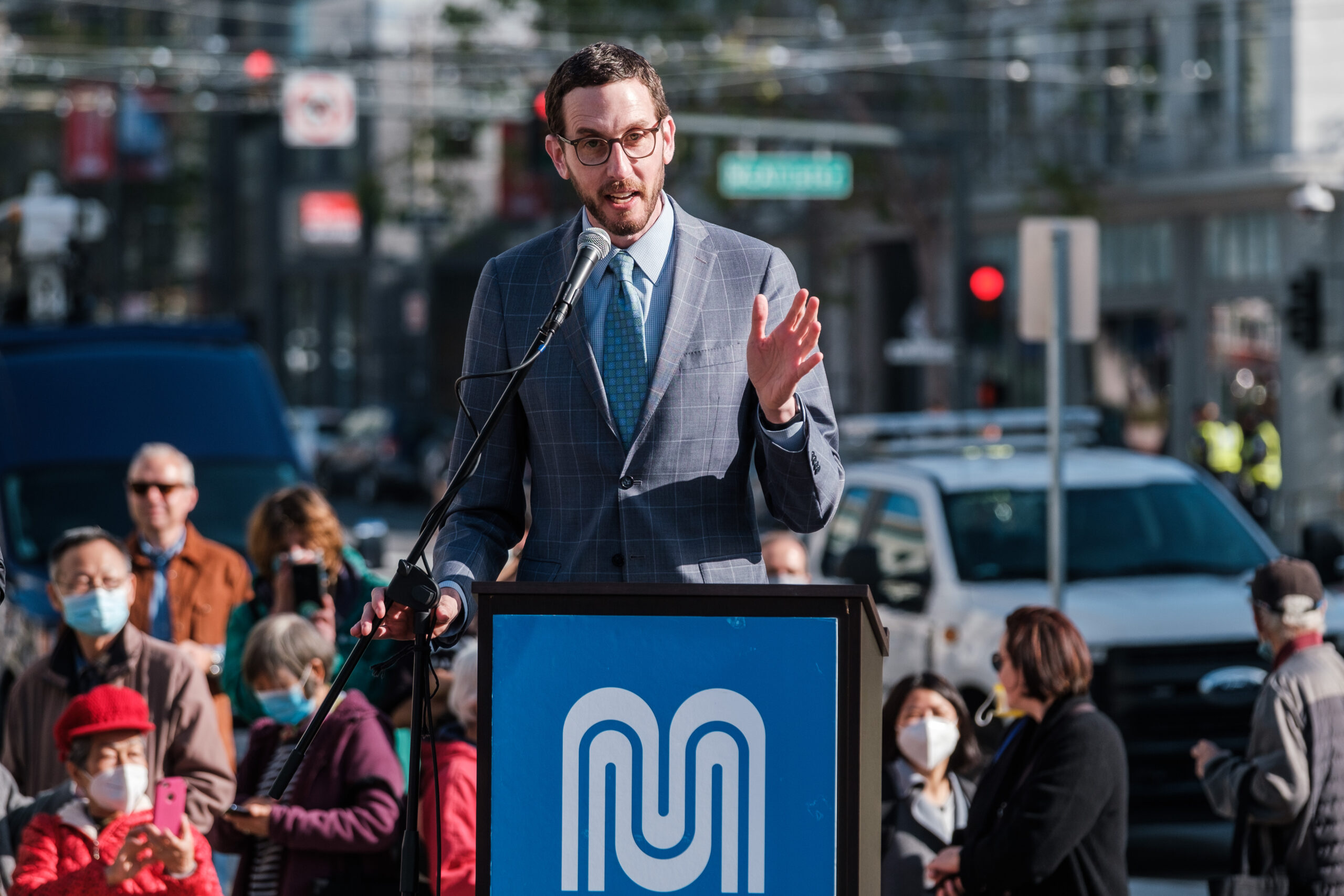A bill proposing a temporary toll increase for Bay Area bridges to fund public transportation has been shelved, its authoring legislators said Monday.
State Sen. Scott Wiener and Assemblymember Lori Wilson, D-Suisun City, said in a joint statement that State Bill 532 has taken a pause, and they will instead focus their efforts on developing strategies for more transit funding for the next legislative session.
If passed, the bill would have raised tolls by $1.50 on seven Bay Area bridges for five years, starting in 2024. The estimated $180 million in revenue would have been used to sustain funding for Bay Area transit agencies as federal emergency resources dry up post-Covid lockdowns.
The bill was intended to give agencies enough time to continue services until they find a stable source of funding, which could potentially come in the form of a regional ballot measure in the future.
Wiener was among the biggest cheerleaders for a last-minute budget deal that provided $1.1 billion to transit agencies facing fiscal cliffs.
The stopgap funding provided in the budget is slated to run through the end of 2024, leaving further gaps in funding before a regional transit funding measure can be placed on the ballot in 2026.
Although the additional funding helped to forestall immediate drastic service cuts, the risk has not been completely eliminated. Erik Mebust, a communications director for Wiener, said San Francisco Municipal Transit Agency expects service cuts to begin near the end of 2024, while BART expects cuts sometime in 2025 without additional funding sources.
Mebust said, “$1.1 billion over five years is a good start and important, but about 80% of the problem is still unresolved. We could be looking at two years of seriously reduced service that could devastate the system and trigger a doom loop.”
Deteriorating transit systems could also lead to a higher risk of failure when it comes time to ask taxpayers to help foot the bill in the form of a regional transit funding measure.
“While there was not enough time to reach a consensus on how to solve this looming problem, we made substantial progress on a solution,” Wiener said. “I will continue to make transit operations funding a major priority, and I look forward to continuing those discussions into the fall.”
The pause comes after multiple California representatives expressed concerns about the legislation unfairly impacting low-income residents, and that it would not provide sustainable solutions for public transportation agencies in the long term.
Wiener and Wilson said that in response to the opposition, they will collaborate with Bay Area legislators in a working group to determine which transit funding proposals to pursue next legislative session that everyone agrees on. Potential proposals include state budget allocations, temporary toll increases and the regional transit funding measure, among other ideas.
“Increasing tolls can be a significant burden to Bay Area commuters who are already dealing with high cost of living, inflation and other expenses,” Wilson said. “From an equity perspective, tolls can have substantial repercussions, especially for those where public transit is not a viable option.”
“We need to ensure there is accountability and verifiable data collection so that our proposed solutions are evidence-based and defensible to those being asked to bear the burden of this investment,” she said. “I look forward to facilitating these discussions along with Sen. Wiener in the fall with interested members of the Bay Area Caucus.”
However, it is possible that a bridge toll hike comes back in a slightly modified form. That’s in part because of the limited toolbox that lawmakers have to provide additional transit funding. Additionally, there’s skepticism that another rescue package will come from the state budget due to California’s uncertain fiscal outlook.
The San Francisco Municipal Transportation Agency said in a statement on social media that it found the pause “very disappointing” and a blow to its efforts to preserve Muni service.
“But we’re going to keep fighting for the hundreds of thousands of people who rely on Muni every single day,” said the agency. “We can’t afford to lose transit.”
